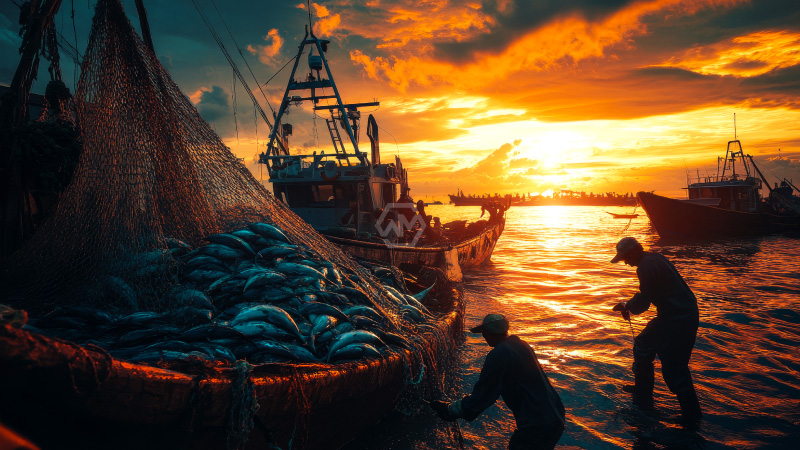- Indian Ocean nations face major economic and ecological damage due to Chinese illegal fishing.
- French and British fishers clash over bottom trawling bans in protected zones.
- UK Parliament seeks stakeholder input on new fishing fund and EU food trade standards.
Coastal nations in the Indian Ocean are under siege from illegal, unreported, and unregulated (IUU) fishing—most notably by Chinese distant-water fleets.
At the heart of the UK-EU fishing dispute is the UK’s proposed ban on bottom-trawling gear in 41 offshore Marine Protected Areas (MPAs), which has ignited strong backlash from French fishermen.
Net Losses: How Global Fishing Conflicts Are Reshaping Ocean Politics
China’s fishing fleet is not just a commercial actor—it operates as a covert extension of its military strategy. Analysts suggest that many Chinese vessels in the Indian Ocean are equipped with advanced surveillance tools and serve dual roles as maritime militias. These ships reportedly assist with intelligence gathering and expand Beijing’s strategic influence, particularly in ports where China holds infrastructure agreements with local governments.
The phenomenon of “flagging in” allows Chinese vessels to operate under African flags, giving the appearance of legality while bypassing international rules like the Port State Measures Agreement. These disguised operations often go unchecked due to weak enforcement and fragmented international oversight, which relies on consensus among bodies like Regional Fisheries Management Organizations (RFMOs) where China holds significant sway.
In the UK, fishing communities are wary of government proposals that seem disconnected from coastal realities. Industry groups have labeled the trawling ban as a “shock assault” on livelihoods and accuse the government of caving to environmental NGOs. Simultaneously, the EFRA Committee is calling for insights on how the £360 million fund can be structured to support small-scale fleets and remote communities that have long felt underrepresented in national policies.
The proposed SPS agreement between the UK and EU aims to reduce border frictions in food trade while maintaining standards. However, concerns remain over how “dynamic alignment” might affect UK autonomy and regulatory divergence across devolved nations. Stakeholders are encouraged to weigh in on how these agreements might influence farming practices, food safety, and the future direction of UK agricultural and seafood policy.
The global fisheries crisis reveals a deeper struggle between conservation, sovereignty, and survival. As ocean politics grow more entangled, the call for cooperative, enforceable solutions becomes urgent.
“The sea, once it casts its spell, holds one in its net of wonder forever.” — Jacques Cousteau



